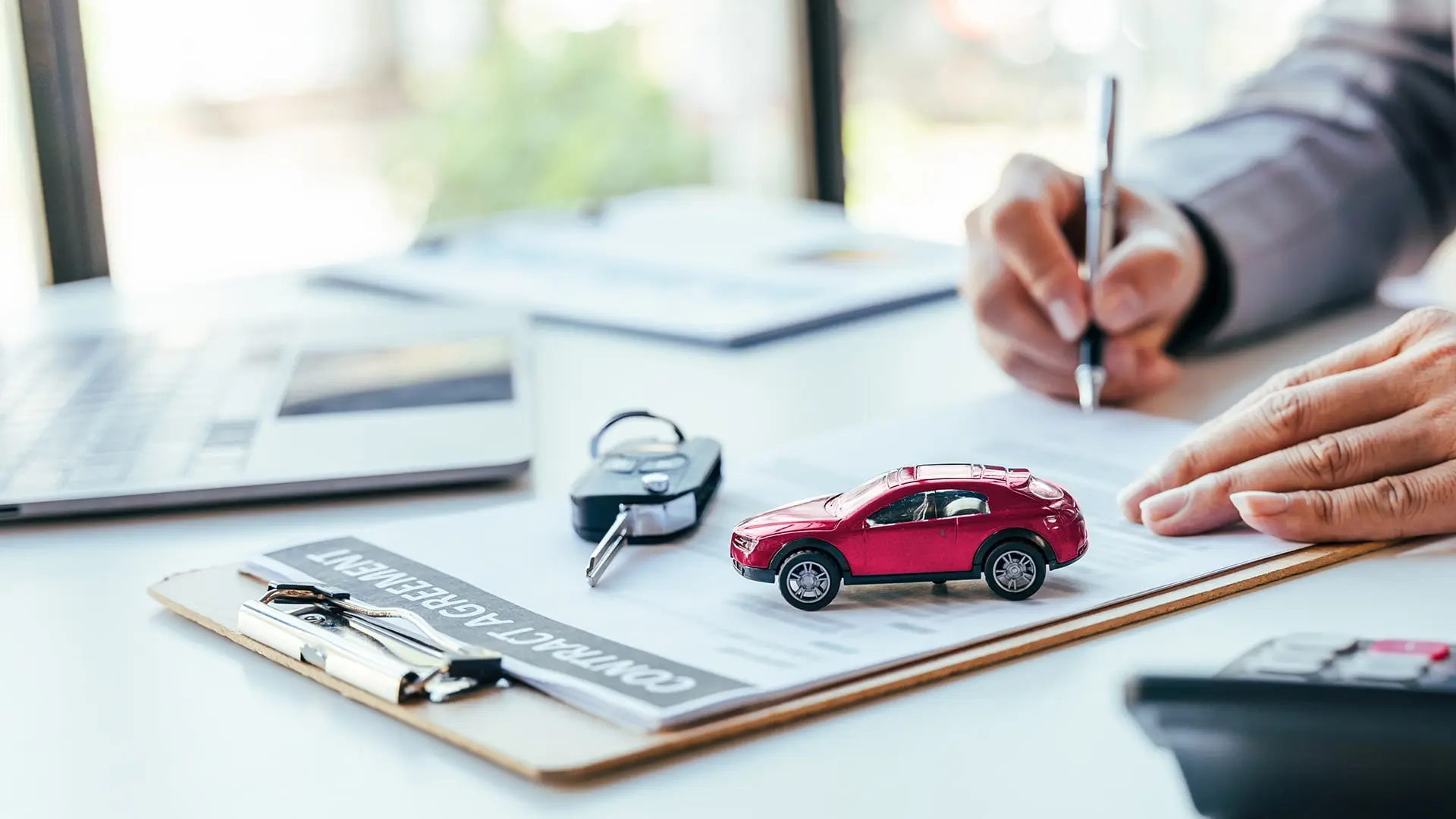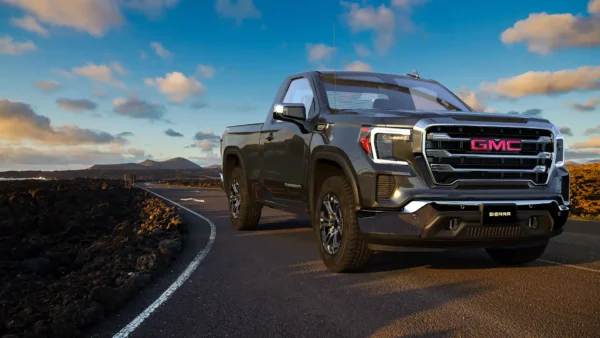When you’re shopping for a new car, you may not have the money to pay for it all in cash. Leasing and financing are two popular ways to get the car you want, with payments you can afford. In terms of auto insurance, it makes no difference to your rates whether you lease or finance your new vehicle.
In both cases, the financing or leasing company will want to be protected in case you total the car. That means you’ll need coverage that wouldn’t be required if you owned the car outright.
So you decided it’s time to trade in your old beater for the car of your dreams…or at least one that is newer, nicer, more reliable, and has better features. In most cases, that means you’re looking for a car with a sticker price of $20,000 or more. Most people don’t have that kind of cash lying around, so one of the big decisions you’ll have to make is whether you want to lease or finance that car, and which payment terms make sense for your budget.
Will leasing or financing make a difference in my auto insurance premium?
The short answer is no. Your insurance broker will ask about how you are paying for the vehicle, but it won’t make a difference in the quotes they come back with. The reason they ask is because the lender or leasing company will need to be added to the insurance policy, so if you total the car, they will get paid what you owe them. The financing or leasing company will probably also insist that you get the following coverages, which aren’t required by law:
- Minimum $1 million liability coverage
- Collision coverage (in case you crash the car)
- Comprehensive coverage (in case the car is stolen, vandalized or destroyed by severe weather)
- Gap coverage (in case you total the car and owe the lender more than the car is worth at that time)
As for cost, collision and comprehensive coverage account for about 30% of your premium, so leasing or financing may cost you more in premiums. But the fact is that most people who buy or lease a new car will get this coverage anyway. Same with the liability coverage. Although by law you’re only required to carry $200,000 in liability coverage, it’s very cheap to increase that to $1 million, and almost nobody would recommend a liability limit below $1 million.
As for gap insurance, your car dealer may offer it for an additional $300-$800, or you can buy it as part of your car insurance for a few bucks a month.
Is it better to lease or finance my new car?
The decision of whether to finance or lease is never clear-cut, and depends on how long you like to drive your vehicles before trading them in.
If you like to drive your vehicle for 3-5 years, and then trade it in for a new one, then leasing is probably the way to go, especially if you don’t put a lot of kilometres on your vehicles.
| Leasing | Financing | Notes | |
|---|---|---|---|
| Down payment | Nowadays, the amount of downpayment is flexible with both leasing and financing. No money down is an option for both with good credit. | ||
| Credit check | Whether you lease or finance your vehicle, you will be subject to a credit check. | ||
| Monthly payments | Assuming the same downpayment on the same car, you will pay 30 to 60% less on a monthly basis for a lease. | ||
| Taxes | Because you are only buying the value of the car that you’re using (usually about half the value over 3 years), you only pay half the tax. | ||
| Duration of Payments | Leases are typically for 12 to 36 months, whereas financing is usually over 5 or 6 years. | ||
| General Affordability | It depends. If you finance your car, you’ll pay more over the first 5 years, but then you could potentially continue to drive the car with no payments for another ten years. If you lease, you will always have a monthly payment. | ||
| Pride in Ownership | If you lease the car, it’s never technically yours. But you always have the option to buy it for a set price at the end of the lease if you like it. | ||
| Customization | If the vehicle is yours, you can modify the engine, paint it a different colour add mag wheels etc. You wouldn’t want to waste your money to customize a leased vehicle, plus it’s not allowed. | ||
| Damage | If there’s damage to a leased vehicle when you return it, you could be charged substantial fees. If the car’s your own, you decide whether or not to fix the damage. | ||
| Mileages | A lease has a limited number of km you can drive the vehicle (usually 15,000 to 25,000 km). If you return it with more than those km, you will be charged for each extra km. You don’t get a credit if drive it less than the limit. | ||
| Insurance | It doesn’t matter. Whether you lease or finance, your insurance premium doesn’t change. | ||
| Getting out | If after a year, you’re not happy with the car, you can’t afford the payments or want out for any other reason, if you own the car, you can just sell it, pay the dealer the balance owing, and that’s it. If you’re leasing, there are penalties for early termination. | ||
| When the Payments are Done | If you buy your car, when you’re finished making payments, the car is yours. At the end of a lease, if there’s no damage to the car and you didn’t exceed the kilometre limit, you return the keys and never think about it again. You’re left with nothing, unless you want to pay the set residual value stated in the lease and buy the car from the leasing company. |
Benefits of leasing
- When you lease a car, you only pay tax on the portion of the car’s value that you use, which is usually about 50% if you lease it for 5 years.
- Monthly payments are generally more affordable than if you finance.
- If, after your lease is up, you decide you want to keep the car, you can buy it from the dealer for a set price that you’ll know from the start.
And a few drawbacks of leasing:
- If you drive a lot, you may find yourself paying significant penalties at the end of the lease if you put more than the agreed-upon number of kilometres on the vehicle.
- If there is significant damage to the car (anything larger than a small stone chip) when the lease is up, you’ll be on the hook for the cost of repairs.
Benefits of financing
The benefits of financing are pretty simple: You can drive the car as much as you want, sell it whenever you want, and you can decide whether or not to make minor repairs. Your monthly payments will be higher, but when the payments are finished, the car is yours.
Whether you want to lease or finance your new car, give us a call first, and we’ll get you dozens of competitive quotes from the top insurance companies in Ontario.
Smart tip
Don’t leave anything to chance. Before you make a decision on whether to lease or buy your ride, go online to one of many lease and purchase calculators that are available, and punch in the numbers. Not only will it help you decide which payment method is right for you, but it can also help you determine which car you can afford, and how many years it will take to pay it off.
Looking for car insurance?
Speak with a Mitch Insurance broker today to get a quote on Ontario auto insurance. Learn more >
Call now
1-800-731-2228







